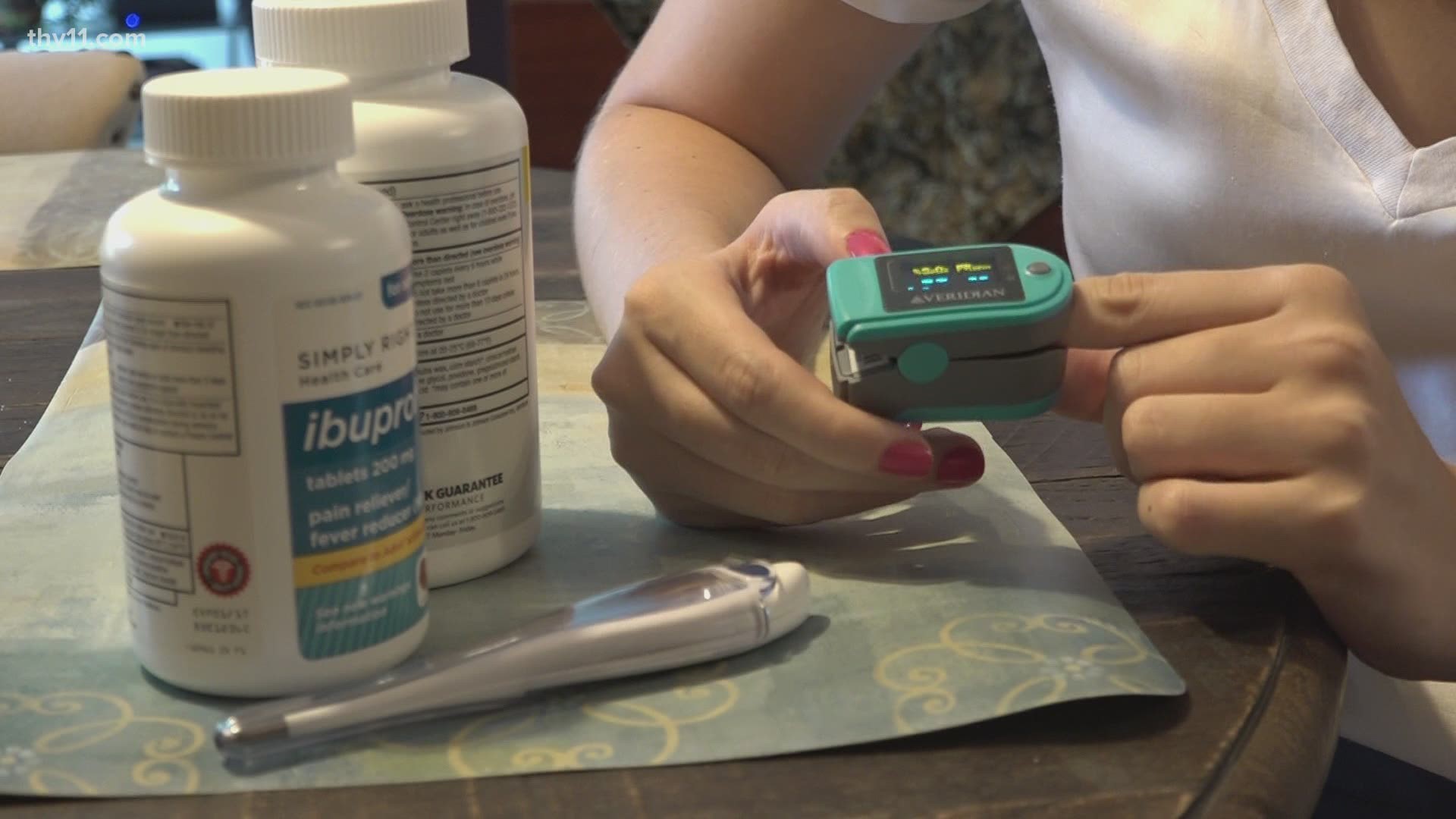LITTLE ROCK, Arkansas — When someone close to you gets COVID-19, your home and safe space aren't so safe anymore.
If this happens, Dr. Susanna Shermer with CHI St. Vincent said to start distancing immediately.
"Using a different bed, different bathrooms, and if you have to be in the same room as someone, use a face covering," said Dr. Shermer. "We know this virus, and like any other virus, it spreads through droplets. That not only includes coughing and sneezing, but even talking within the same room."
Shermer said when one person tests positive within the same household, it is assumed everyone in that home has been exposed. It is recommended everyone living there quarantines for 14 days.
To monitor your condition, Dr. Shermer recommends having a thermometer and pulse oximeter on hand. It detects how much oxygen is getting to your blood.
"It's just a simple little machine that goes on your fingertip and it gives you a reading. Usually anything above 94 percent is pretty safe, and if you drop below that, it's pretty concerning," said Dr. Shermer.
She also recommends using Tylenol to reduce aches and pains, and to get up and move around the house. She said to take deep breaths and walk around the house for 5 to 10 minutes every hour. This will keep from fluid buildup in your lungs.
If your symptoms get worse, you may need to go to a hospital.
CHI St. Vincent's policies state a patient with COVID-19 will not be admitted to the hospital unless they have shortness of breath and certain lab tests are performed.
At UAMS, a person will be admitted if they need fluids, supplemental oxygen, and monitoring that they cannot do at home.
Baptist Health will admit a COVID-19 patient if they are symptomatic and have significant oxygen requirements.
"If we really care about stopping the spread of this, we've got to quarantine when we get sick," said Dr. Shermer.

